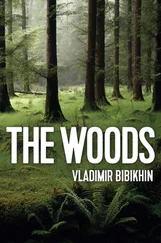Vladimir Sorokin - The Blizzard
Здесь есть возможность читать онлайн «Vladimir Sorokin - The Blizzard» весь текст электронной книги совершенно бесплатно (целиком полную версию без сокращений). В некоторых случаях можно слушать аудио, скачать через торрент в формате fb2 и присутствует краткое содержание. Год выпуска: 2009, ISBN: 2009, Издательство: Farrar, Straus and Giroux, Жанр: Старинная литература, на английском языке. Описание произведения, (предисловие) а так же отзывы посетителей доступны на портале библиотеки ЛибКат.
- Название:The Blizzard
- Автор:
- Издательство:Farrar, Straus and Giroux
- Жанр:
- Год:2009
- ISBN:9780374709396
- Рейтинг книги:4 / 5. Голосов: 1
-
Избранное:Добавить в избранное
- Отзывы:
-
Ваша оценка:
- 80
- 1
- 2
- 3
- 4
- 5
The Blizzard: краткое содержание, описание и аннотация
Предлагаем к чтению аннотацию, описание, краткое содержание или предисловие (зависит от того, что написал сам автор книги «The Blizzard»). Если вы не нашли необходимую информацию о книге — напишите в комментариях, мы постараемся отыскать её.
The Blizzard — читать онлайн бесплатно полную книгу (весь текст) целиком
Ниже представлен текст книги, разбитый по страницам. Система сохранения места последней прочитанной страницы, позволяет с удобством читать онлайн бесплатно книгу «The Blizzard», без необходимости каждый раз заново искать на чём Вы остановились. Поставьте закладку, и сможете в любой момент перейти на страницу, на которой закончили чтение.
Интервал:
Закладка:
Meanwhile, Crouper had put on his boots, thrown on a small black coat and tied it with a sash, tucked a pair of long heavy mittens under the sash, pulled on a hat, picked up a loaf of bread from the table, cut off the heel, and stuck it under his coat; he cut off another piece and took a bite. Still chewing, he winked at Vasyatka, who was sitting on the bench:
“A gulp of tea to warm the bones now, eh? But ain’t no time: just looky what a fuss he’s making. Epi-demic! Where’d he come in from?”
“Repishnaya, I think.” Vasyatka rubbed his eyes with a fist. “With the post horses. The mail driver, he went straight to bed.”
“Why shouldn’t they sleep, ’em fellers…” Crouper took a farewell glance at the stove, cuffed Vasyatka on the head, and went out into the backyard chewing his piece of rye bread.
The bread man’s yard was just as plain and old as the izba : a lopsided stall abutted it, stores of firewood were piled in disarray, and in the distance was a hay shed with a collapsed roof that had been hastily covered with poles and straw; close by a dark threshing barn looked like it hadn’t seen a threshing for at least four years. In contrast, a small stable resembling a bathhouse was new: it had a shingled roof, well-chinked walls, and two insulated windows. Next to it, under a snow-covered lean-to, stood the sledmobile. Crouper plowed through the snow in a fast, bowlegged gait, reached the stable, stuck his hand under his shirt, pulled out a key on a string, and opened the hanging lock.
From behind the door came an intermittent, shrill sound, like the trill of a large cricket. Then three more chimed in, then more, more, and more, until suddenly it seemed an entire swarm of crickets was chirping away noisily. Then came a grunt. The chirping in the stable grew even louder.
“Now, you lot, I’m here, I’m comin’…” Crouper unlocked the door, threw it wide open, and entered the stable.
He was met by pleasant, familiar smells. Leaving the door ajar so there would be more light, he walked through the smithy and tack room straight to the horses’ stalls. A joyous chirping filled the stable. In contrast to Crouper’s miserable hut and yard, his stable was exemplary: spanking new, clean, and tidy, a clear indication of the owner’s true passion. The stable was divided in half: the smithy and tack room began right at the door. There was a workbench with a small forge, also a tiny oven the size of a samovar, with a bellows fashioned from a beekeeper’s fumigator, and instruments neatly arrayed on the workbench: knives, little hammers, tiny pincers, a gimlet, saws, and a jar of horse ointment with a brush inside. In the middle of the workbench was a ceramic cup filled with tiny kopeck-sized horseshoes. Next to it was another cup that held tiny nails for the shoes. Little wooden yokes were strung in rows on the nearby wall, like dried mushrooms. A large kerosene lantern hung over the forge.
Beyond the forge and tack was the feed in a large woven basket filled with finely cut clover. Then came a partition, and behind it—the horse stalls. Smiling, Crouper leaned over the partition, and the modulating whinnies of fifty small horses filled the air. They occupied various stalls: some in pairs, some five together, some in threesomes. Each stall had two wood troughs—one for water, the other for feed. In the feed trough lay the white remains of the oatmeal Crouper had fed the horses at five that morning.
“Now, the lot of ye—we gonna go for a drive?” Crouper asked his horses, and they neighed even louder.
The younger ones reared and bucked; the shaft horses and the steppe horses snorted, shook their manes, and nodded. Crouper lowered his large, rough hand, still holding the piece of bread in the other, and began petting the horses. His fingers caressed their backs, stroked their manes, and they neighed, tossing their heads and stretching their necks. They playfully nipped his hand with their tiny teeth and pressed their warm nostrils against his fingers. Each horse was no bigger than a partridge. He knew every single one of them and could tell you what its story was, where it was from, and how he got it, how it worked, who its parents were, and describe its likes and dislikes—its personality. The backbone of Crouper’s herd, over half of it, consisted of broad-chested bay mares with short, dark red tails. Then came the chestnuts and dark-maned sorrels, eight more bays, four grays, two dapple grays, and two roans—one black roan and one red.
There were only stallions and geldings. Little mares were worth their weight in gold, and only horse breeders could afford them.
“Righty, a nice bit of bread,” said Crouper as he crumbled the bread and threw it into the troughs.
The horses leaned over. When he’d handed out all the bread crumbs and the horses had finished eating, Crouper clapped his hands and commanded loudly:
“Ha-a-a-rness!”
With a jerk he lifted the gate that opened all the stalls at once.
The horses walked along the cleanly swept wooden chute and mingled in a herd, greeting one another, nipping, whinnying, and bucking. The chute led to a partition wall, behind which the sled stood. Crouper gazed at the herd; his face brightened and he looked younger. His horses always made him happy, even when he was tired, drunk, or feeling downtrodden. He slid back the partition, letting the horses into the harness of the sledmobile. The herd moved briskly despite the cold billowing from the sled’s frozen interior.
“There ye go, there ye go,” Crouper encouraged the horses. “Ain’t so bad, you c’n stand the cold…”
He waited for the last horse to enter, then slid the partition shut, quickly went outside, locked the stable, and hid the key under his coat. Hurrying around the stable with a bowlegged gait, he raised the hood of the sled. The well-trained horses had moved into place and were waiting to be harnessed. There were five rows of ten horses under the hood. Crouper quickly pushed the horses’ heads through the collars and strapped them in. They went peacefully; only the two bays in the third row began to bicker and disturb the peace, as usual.
“Ye just wait, I’ll give ye a taste of the whip!” Crouper threatened them.
Harnessed up, the first row of ten well-fed shaft horses, all bays, pawed the frozen ribs of the drive belt. The chestnuts in the third row lowered their long-maned heads for their master, so he could place them in their collars, while the bays held themselves with the dignity of the highest order of the equine race, their ears perked forward. The grays kept on munching indifferently, the sorrels snorted and tossed their heads, and the dappled grays pranced impatiently. The energetic red roan neighed, baring his young teeth.
“There ye goes.” Crouper slid the wooden bolt of the hood across, locking all the horses in place; he took the tar pot, smeared the bearings of the drive belt, put on his mittens, grabbed a small whip, and went to fetch the doctor.
The doctor was standing on the stoop, smoking the last of his second papirosa .
“We c’n go, yur ’onor, sir,” Crouper informed him.
“Thank God…,” said the doctor, flicking his cigarette butt with an annoyed gesture. “Let’s be off, then.”
Crouper took one of the doctor’s travel bags and they walked back through the mudroom and into the courtyard, to the sled. Crouper unfolded the bearskin rug, the doctor seated himself, and while Crouper strapped his bags to the coach box in back, the doctor examined the horses. He seldom had occasion to see little horses and even less to travel by them, and though tired from the wait, he regarded them with interest as they stood in five rows under the hood, their little hooves striking the ribbed strip of the frozen drive belt.
Читать дальшеИнтервал:
Закладка:
Похожие книги на «The Blizzard»
Представляем Вашему вниманию похожие книги на «The Blizzard» списком для выбора. Мы отобрали схожую по названию и смыслу литературу в надежде предоставить читателям больше вариантов отыскать новые, интересные, ещё непрочитанные произведения.
Обсуждение, отзывы о книге «The Blizzard» и просто собственные мнения читателей. Оставьте ваши комментарии, напишите, что Вы думаете о произведении, его смысле или главных героях. Укажите что конкретно понравилось, а что нет, и почему Вы так считаете.












